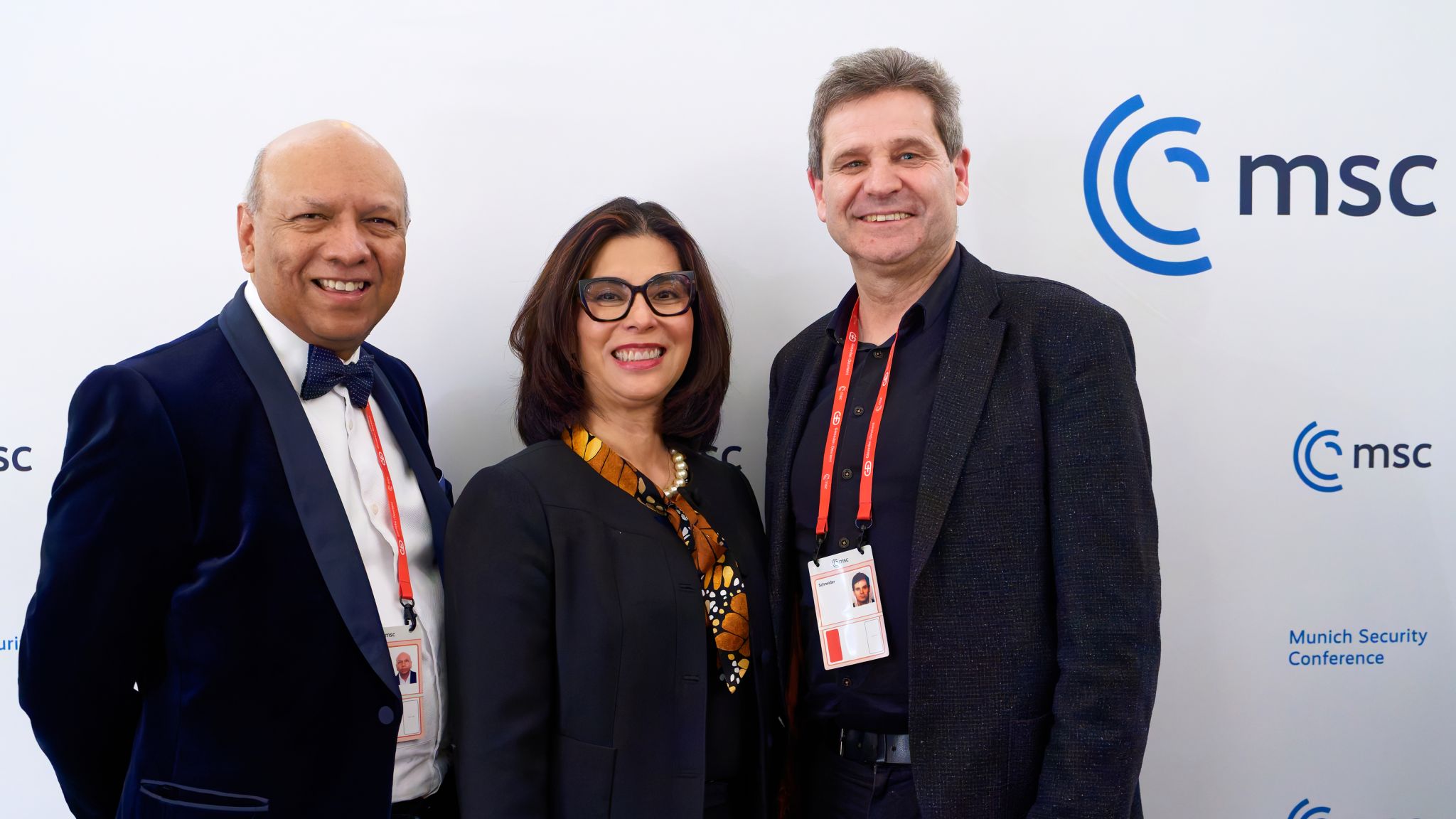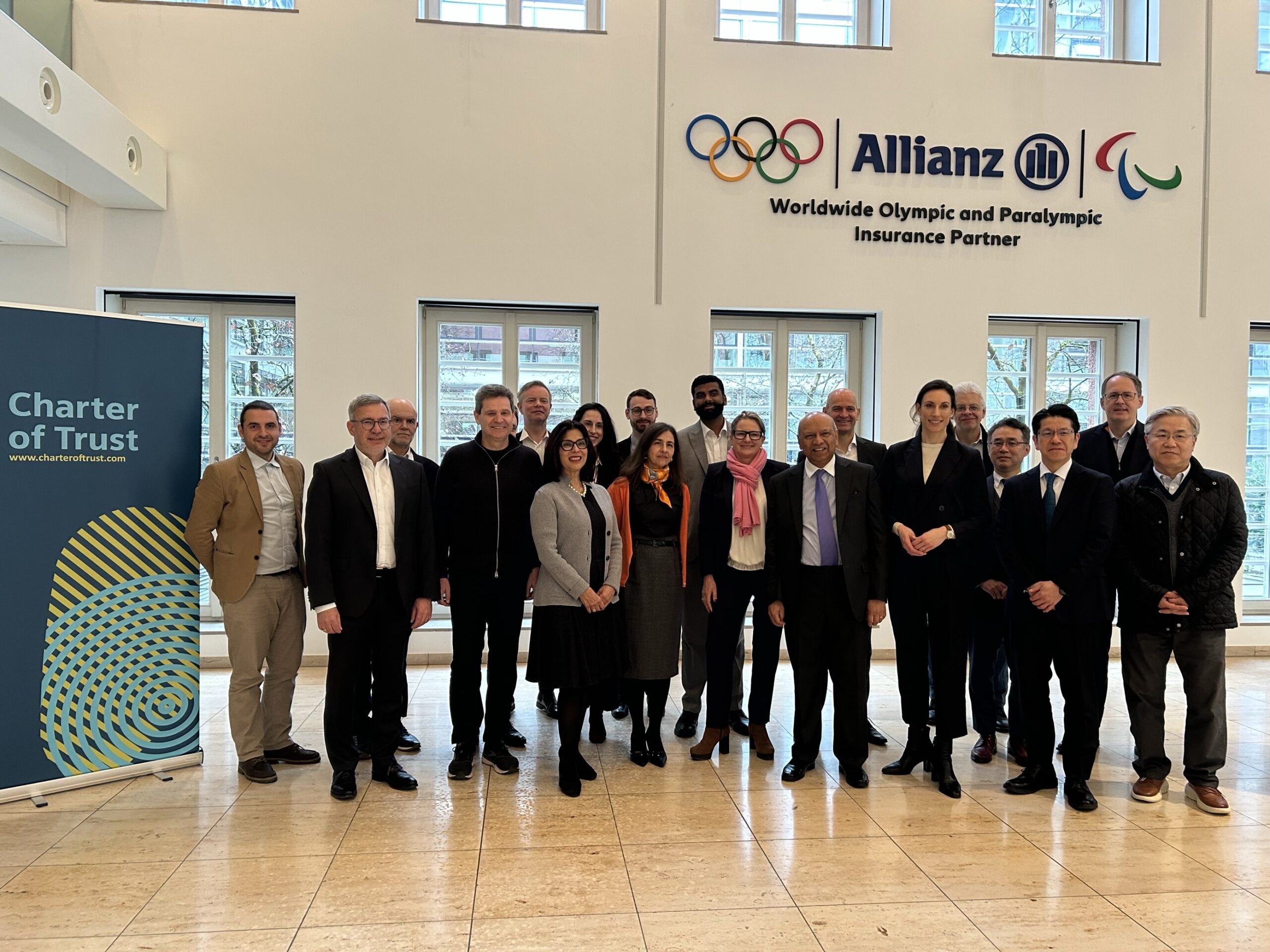In the face of rising global cyber threats, over 50 CISOs have called for greater international alignment of cybersecurity regulations to strengthen defenses and reduce fragmentation. This message was echoed at RSAC 2025, where experts from the OECD, European Commission, academia, and industry emphasized the need for principle-based collaboration. The Charter of Trust, a long-time advocate for regulatory harmonization, continues to support coordinated, effective approaches that prioritize clarity over complexity.
In response to growing cyber threats, governments worldwide are introducing an increasing number of cybersecurity laws and regulations or updating existing ones. These efforts help ensure organizations across the ecosystem prioritize security. At the same time, without coordination, an increasingly fragmented regulatory landscape risks undermining the very resilience regulators seek to strengthen.
On April 23, 2025, a group of over 50 Chief Information Security Officers (CISOs) released a joint letter they had signed to highlight the need for greater alignment and reciprocity of cybersecurity regulations internationally and across sectors to maximize stronger cyber defenses. They also encouraged G7 and OECD member states to make this a priority and to leverage the OECD to drive greater alignment moving forward.
At RSAC last week, a panel of experts, moderated by Charter of Trust member Microsoft’s Tim Maurer, tackled this urgent challenge. The session featured Florian Schütz from the Swiss National Cybersecurity Centre and chair of the OECD Working Party on Digital Security, Christiane Kirketerp de Viron from DG Connect, Ari Schwartz from Venable LLP, and Josephine Wolff from Tufts University. Together, they explored how today’s regulations are reshaping operational cyber defense.
One clear takeaway from the panel at RSA is that the participants agreed on the need for greater alignment and simplification. As Florian Schütz emphasized, “We will never agree on everything globally—and that’s okay… But we need to find common ground. The OECD is a useful vehicle because it’s principle-based—it doesn’t prescribe how to regulate but outlines recommended approaches and shared principles.” His remarks echo the Charter’s view that harmonization does not mean uniformity—but clarity, coordination, and collaboration. Christiane Kirketerp de Viron highlighted the European Commission’s work on greater simplification and Ari Schwartz outlined specific suggestions what issues could be prioritized in response to some of the gaps and divergence Professor Wolff has identified as part of her research.
The Charter of Trust has long advocated for a more coherent and aligned international approach to cybersecurity regulation. Our 2024 paper, Harmonising Regulations – A Charter of Trust Perspective, highlights key friction points in the current landscape including divergent definitions, conflicting reporting timelines, and an associated increase in operational cost and complexity.
We are encouraged by the positive response to the CISO letter and welcome the OECD’s role as a forum for principle-based collaboration. The Charter of Trust continues to support this momentum and work with partners to advance smarter, more effective cybersecurity regulations.


You may also like

New Chairwoman for the Global External Engagement Group
Pino’s election follows a dynamic Collaboration Week in Denmark, where Charter of Trust partners from around the world came together to align on strategy, strengthen partnerships, and reaffirm our commitment to a secure digital future. As a longstanding leader within the advocacy workstream, Pino has been instrumental in fostering open dialogue with key external stakeholders and promoting cybersecurity awareness across industries and institutions.
“A reliable digital world can only thrive if public and private institutions build trust and cyber-resilience together, share their expertise, and support society in this digital journey. Those are our goals at the Charter of Trust,” says Pino.
She takes over the role from Sumit Chanda, COO/CISO at Atos, who has guided the working group with vision and energy. We are pleased to share that Dr Chanda has since been elected Co-Chair of the Charter of Trust by the Board of Directors in February—ensuring his continued impact on the initiative’s strategic direction.
We extend our sincere thanks to Sumit for his outstanding leadership and warmly congratulate Pino on her new role.

Charter of Trust elects new co-chairs of the Board of Directors
The Partners and Associated Partners thanked Natalia Oropeza, Global Chief Cybersecurity Officer at Siemens, for her engagement and steady leadership during her term as Chairwoman. In her tenure, the Charter of Trust underwent important internal and external changes. What first stands out is the smooth integration of the four working groups, which made the Charter of Trust more agile, leaner and more efficient. It is also safe to say that the alliance has never had such a high level of exposure externally, due to the Charter of Trust partners continuous dedication to the mission of the alliance.
In the spirit of industry collaboration, Natalia Oropeza expressed her support to our new Co-Chairs and said how “incredibly proud of what we have achieved together, welcoming new partners, strengthening our structure, and elevating the Charter of Trust's impact on the global cybersecurity landscape. Collaboration has been at the heart of our success, and I am confident that Dr. Sumit Chanda and Dr. Ralf Schneider as Co-Chairs, the Charter will continue to drive meaningful progress towards a more secure digital world."
For the first time in its history, the Charter of Trust will be co-chaired. Dr. Ralf Schneider from Allianz and Dr. Sumit Chanda from Atos who have decades of experience in the world of cybersecurity and have been active within the alliance for several years now. Both unite an intrinsic motivation to foster inter- and intra-sector collaboration as well as the continuous sharing of knowledge between the Partners and Associated Partners of the Charter of Trust.
For the next year the co-chairs aim to amplify the number of Partners and Associated Partners. This growth, however, should still preserve the unique features of the Charter of Trust as a large practitioner organization with member from all over the world. Expanding into new sectors and new countries is a key target for the new leadership team, so that the Alliance can continue to engage with stakeholders at the highest level.
Dr. Sumit Chanda underlined that “The Charter of Trust’s role is to promote a safe and trusted digital work. Its unique partnership blend of large organisations, working across 190 countries, and across several sectors, has enabled it to make significant progress under the leadership of Mrs. Natalia Oropeza. I would like to thank her for these great achievements. Along with Dr. Ralf Schneider from Allianz, we welcome the opportunity to build on her work as the Co-Chairs of Charter of Trust.”
Ralf Schneider added that “In dynamic times with more risks, more uncertainty, and more unknowns, we as the Charter of Trust step up – to provide stability, promote reliability, and foster trust. This is our mission today and tomorrow.”.

Charter of Trust Board of Directors Meeting 2025
Under the leadership of Chairwoman Natalia Oropeza, the Charter of Trust has strengthened its internal structure, successfully integrating new Partners and Associated Partners while enhancing collaboration through four dedicated working groups. Externally, the alliance has made a significant impact, engaging global audiences through media, conferences, panel discussions, and key industry events.
Looking ahead to 2025, the Charter of Trust enters a new chapter with a co-chair leadership model. Dr. Sumit Chanda, Global CISO at Eviden, and Ralf Schneider, Head of Cybersecurity at Allianz, will take the helm, bringing a dynamic vision focused on building resilient ecosystems, harmonizing frameworks, and advancing cybersecurity education.
A special thank you to Benedikt Franke, Vice-Chairman & CEO of the Munich Security Conference (MSC), for his insightful keynote on the evolving cyber threat landscape and the vital role the Charter of Trust plays in shaping global cybersecurity solutions.
With a bold vision for 2025, the Charter of Trust continues to drive innovation, collaboration, and trust in the digital world.



